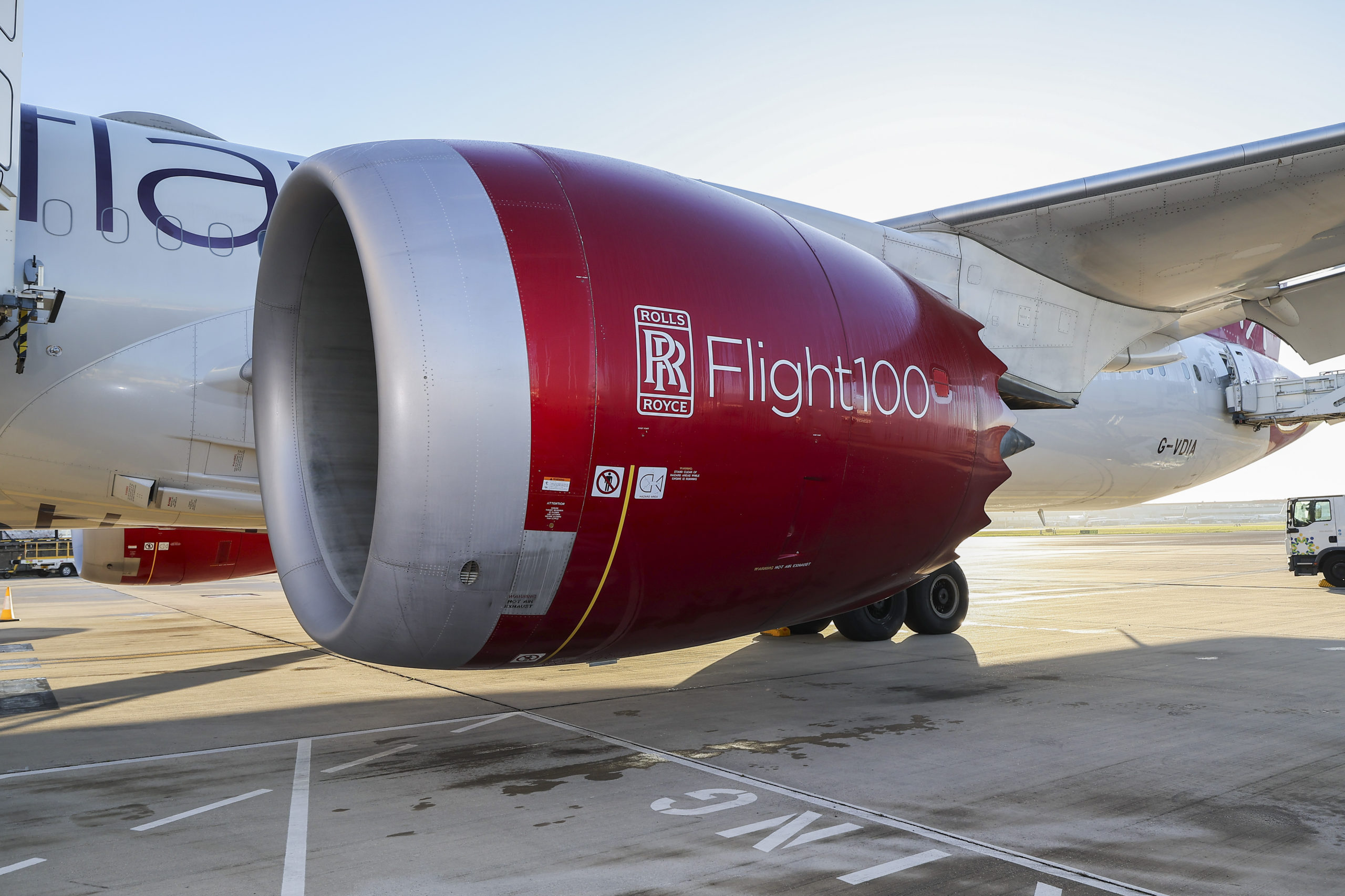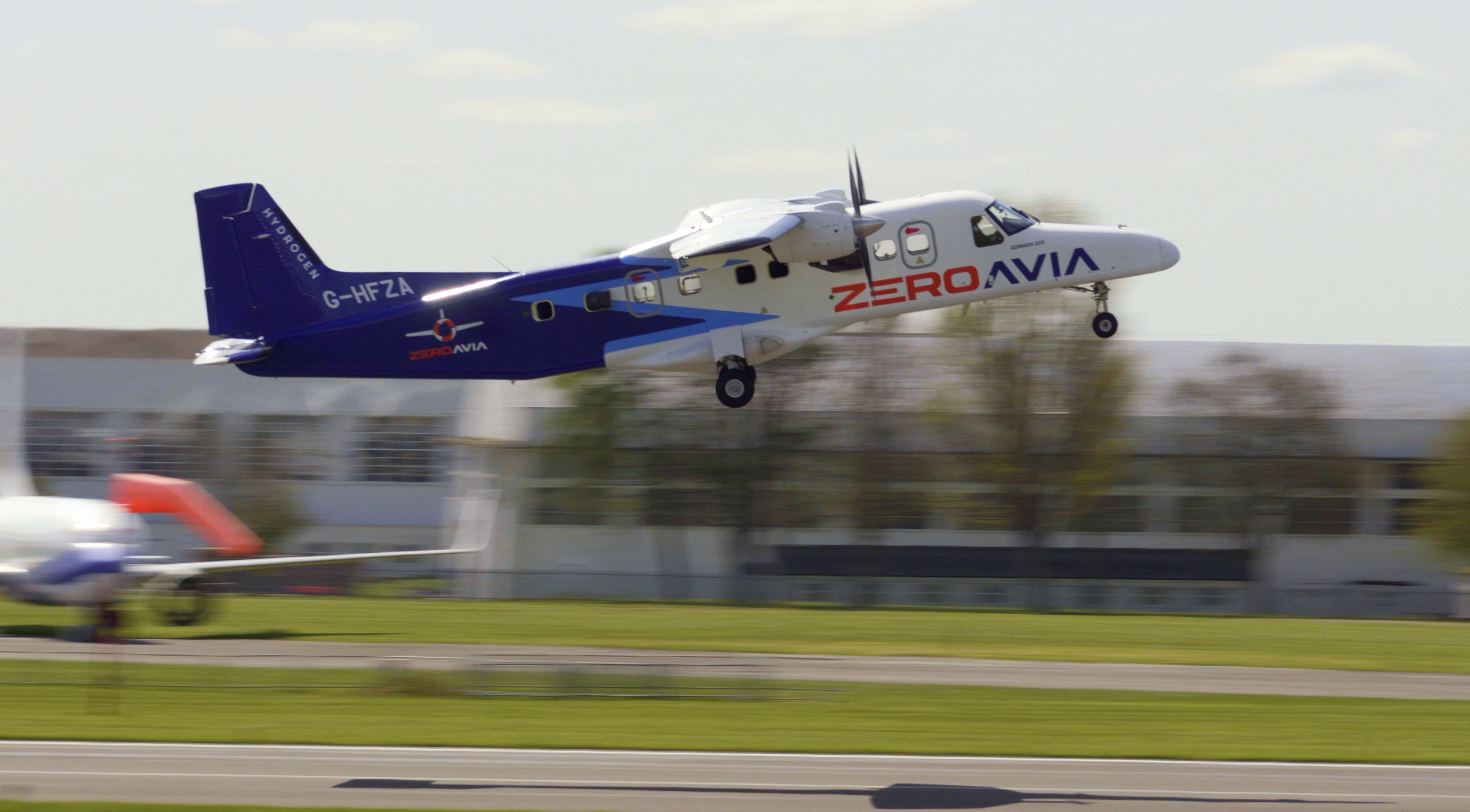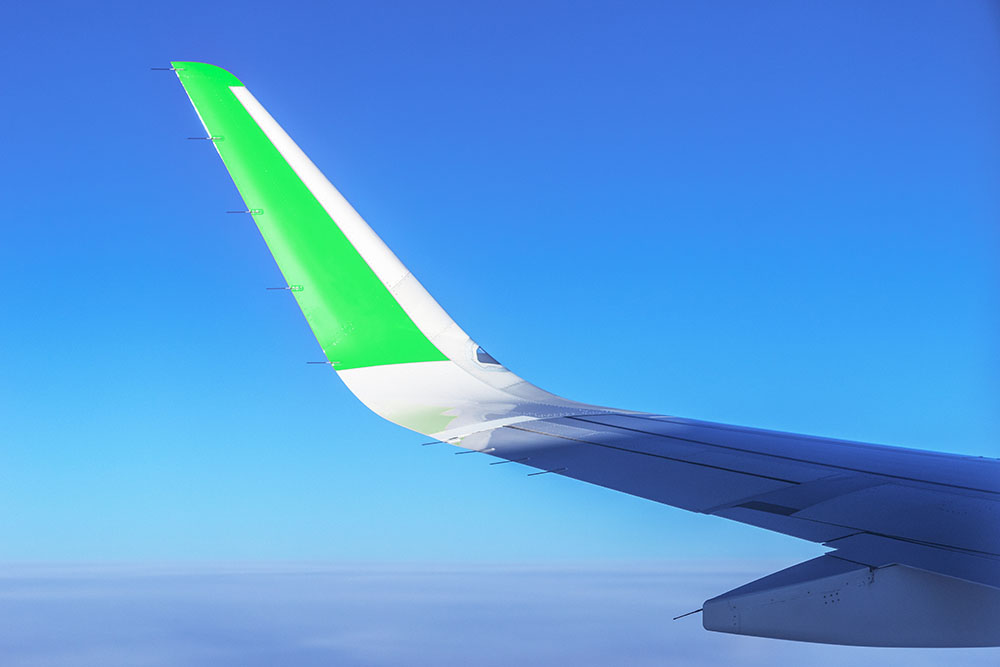Jet Zero Council Member Spotlight: Virgin Atlantic
Jet Zero Council Member Virgin Atlantic shares insights from the first ever 100% Sustainable Aviation Fuel (SAF) transatlantic flight by a commercial airline.

On 28 November 2023, Virgin Atlantic successfully operated Flight100 – the world’s first 100% Sustainable Aviation Fuel (SAF) flight by a commercial airline across the Atlantic. The project was more than a year in the making and involved an industry leading consortium including Boeing and Rolls-Royce, the University of Sheffield and Imperial College London, ICF and the Rocky Mountain Institute.
The challenge was set, and part funded by the Department for Transport, and supported from a regulatory perspective by the Civil Aviation Authority. Outside of the formal consortium, Air bp and Virent provided a fuel blend that not only performed akin to fossil-derived Jet fuel but removed the need for any engine or airframe modifications to demonstrate that 100% SAF is a safe drop-in alternative to existing Jet within existing aircraft and fuel infrastructure.
An extensive testing programme supported the flight
In addition to the fuel, engine and airframe testing that has been taking place since February 2023, the flight was used to test and learn operational efficiency improvements, flight path optimisation and integration of the RMI open-source contrails model into the flight planning and reporting suite.
The University of Sheffield conducted particulates emissions testing on the SAF used, and Imperial College London and RMI worked to improve scientific understanding of the effects of SAF on contrails with a view to implementing contrail forecasts in the flight planning process, as well as a pilot reporting form allowing pilots to report observed contrails in flight. An end-to-end life cycle analysis has been undertaken by ICF, capturing carbon impacts from all elements of the supply chain, including fuel production and transportation, the flight itself, and directly related activities down route on arrival.
Scaling-up
The chosen aircraft was a Boeing 787, flown using Rolls-Royce Trent 1000 engines. The SAF was a blend of HEFA (88%) sourced exclusively from waste fats of European origin and Virent SAK fuel made from plant sugars (12%) imported from the US, providing the aromatic content, fuel density and viscosity needed to provide a drop-in fuel, technically equivalent to Jet.
There remain legitimate challenges that industry needs to face into. Supply chain verification of feedstocks is one of them, as is the need to collectively close the gap on SAF availability and use in the UK. One of the key objectives for the flight was to better engage consumers on the potential, challenges and scale up needed to drive long haul emission reductions from SAF use. And the coverage has been hugely positive – with over 6,000 media hits, live rolling broadcast of take-off and a huge global PR reach.
Virgin Atlantic’s messaging on the day was supported by having the Secretary of State, Mark Harper MP, Sir Richard Branson, and senior executives from across the consortium as onboard observers. Through extensive review, analysis, and safety risk assessment across Virgin Atlantic, Boeing, Rolls-Royce, and the CAA, 100 observers were onboard for this world first. On arrival in JFK, the flight was met by Polly Trottenberg, US Deputy Secretary of Transportation, and Dame Karen Pierce, Ambassador of the UK to the US.
Looking ahead
The consortium’s focus now turns to collating all the data, diligence and analysis undertaken in the past 12 months to produce industry facing reports, data share and recommendations. This will be a Q1 focus across all involved in the flight, with more details to follow from March.
– Written by Holly Boyd-Boland, VP Corporate Development and Sustainability, Virgin Atlantic.
About the Jet Zero Council
The Jet Zero Council is a partnership between industry and government, supported by Innovate UK Business Connect (formerly Innovate UK KTN), to bring together ministers and chief executive officer-level stakeholders, with the aim of delivering at least 10% sustainable aviation fuel (SAF) in the UK fuel mix by 2030 and zero emission transatlantic flight within a generation, driving the ambitious delivery of new technologies and innovative ways to cut aviation emissions.



